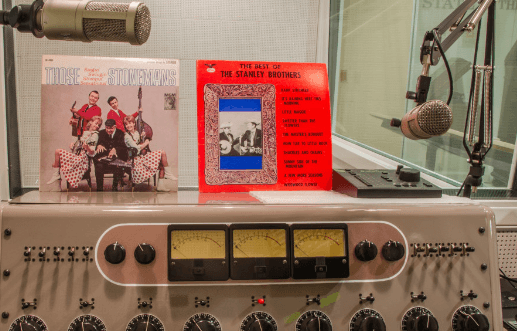
Country Music Radio Station
Country music radio stations have long served as crucial conduits for the genre, bridging the gap between artists and their audiences while fostering a vibrant community. These platforms not only highlight a rich tapestry of traditional and contemporary sounds but also play a significant role in promoting emerging talent. As the landscape of music consumption continues to evolve with technological advancements, one must consider how these stations will navigate the challenges and opportunities that lie ahead. What changes will reshape their influence in the coming years?
History of Country Music Radio
The history of country music radio is a rich tapestry that reflects the genre’s evolution, cultural significance, and the technological advancements that have shaped its dissemination to audiences across the United States.
Country music pioneers, such as the Carter Family and Jimmie Rodgers, laid the groundwork for radio station evolution, enabling the genre to reach broader audiences and cement its place in American culture.
See also: Color:Ejhbt9tak_E= Rainbow
Key Country Music Genres
Country music encompasses a rich tapestry of genres, each reflecting unique cultural influences and musical styles.
Traditional country sounds, characterized by their storytelling and acoustic instrumentation, stand in contrast to modern country trends, which often blend elements from pop and rock.
Understanding these key genres is essential for appreciating the evolution of country music and its diverse audience appeal.
Traditional Country Sounds
While exploring the rich tapestry of traditional country music, one can identify key genres that have shaped its distinctive sound and cultural significance.
These genres often feature traditional instrumentation, such as fiddles and banjos, which enhance the authenticity of storytelling lyrics.
This blend not only highlights the emotional depth of the narratives but also preserves the roots of a beloved American art form.
Modern Country Trends
Emerging from the traditional roots, modern country music has evolved to encompass a variety of key genres that reflect contemporary themes and diverse musical influences.
This evolution is characterized by genre fusion, as artists integrate modern influences such as pop, rock, and hip-hop, creating a sound that resonates with broader audiences.
This dynamic landscape illustrates the genre’s adaptability and ongoing relevance in today’s music scene.
Popular Country Music Stations
Across the United States, numerous country music radio stations have established themselves as influential platforms, shaping the genre’s popularity and connecting fans with their favorite artists.
These stations often feature local radio personalities who engage listeners with stories of country music legends, enhancing the community’s connection to the genre.
Their programming not only celebrates the past but also fosters a vibrant culture of contemporary country music.
Influence on Emerging Artists
Country music radio stations play a pivotal role in shaping the careers of emerging artists by providing them with a platform to reach wider audiences and gain recognition within the competitive music industry.
Through targeted artist promotion and the embrace of genre fusion, these stations help cultivate unique sounds, enabling new talent to stand out while fostering a dynamic, evolving musical landscape.
Technology and Streaming Changes
The evolution of streaming platforms has fundamentally transformed the way country music is consumed, reshaping both distribution and accessibility.
As listeners increasingly turn to digital services, their habits have shifted towards on-demand content, creating new opportunities and challenges for traditional radio stations.
This dynamic landscape necessitates a reevaluation of strategies to engage audiences in an era where convenience and personalization dominate.
Streaming Platform Evolution
Over the past decade, the evolution of streaming platforms has significantly transformed how audiences access and engage with country music, reshaping the landscape of the industry.
Streaming services have enabled diverse audience demographics to discover both mainstream and emerging artists, facilitating a more personalized listening experience.
This shift not only broadens the genre’s reach but also enhances the connection between artists and their fans.
Impact on Listener Habits
As streaming platforms continue to redefine music consumption, listener habits in the country genre have evolved, reflecting a shift towards on-demand access and personalized experiences that cater to individual tastes.
This transformation influences listener demographics, prompting radio stations to adopt innovative programming strategies. By analyzing data on preferences, stations can better engage audiences, fostering a deeper connection with the vibrant country music community.
Community Engagement Through Radio
Frequently, country music radio stations serve as vital hubs for community engagement, fostering connections among listeners through local events, artist showcases, and listener-driven programming.
By actively soliciting listener feedback, these stations create a platform that resonates with their audience’s preferences.
Community events not only celebrate local talent but also strengthen bonds, ensuring that the radio station remains an integral part of the community’s cultural fabric.
Country Music Awards and Recognition
The country music industry celebrates its top talent through a variety of prestigious awards and recognition events, which not only honor individual achievements but also elevate the genre’s cultural significance and influence.
Award ceremonies such as the CMA Awards and ACM Honors serve as platforms for industry recognition, showcasing the artistry and creativity that defines country music while inspiring future generations of artists.
Future of Country Music Radio
Emerging technologies and shifting listener preferences are poised to reshape the landscape of country music radio, presenting both challenges and opportunities for traditional and digital platforms alike.
As country music demographics evolve, radio advertising strategies must adapt to attract younger audiences.
Embracing innovative formats and personalized content will be crucial for stations aiming to maintain relevance and foster community engagement in an increasingly competitive environment.
Conclusion
The evolution of country music radio reflects a dynamic interplay between tradition and innovation, akin to a vintage jukebox spinning both classic hits and contemporary tracks.
As technology reshapes the auditory landscape, radio stations must embrace digital platforms to maintain their relevance.
The enduring commitment to community engagement, alongside the support for emerging artists, ensures that country music radio remains a vital conduit for cultural expression.
The future promises further adaptation, fostering resilience within a rapidly changing musical environment.




